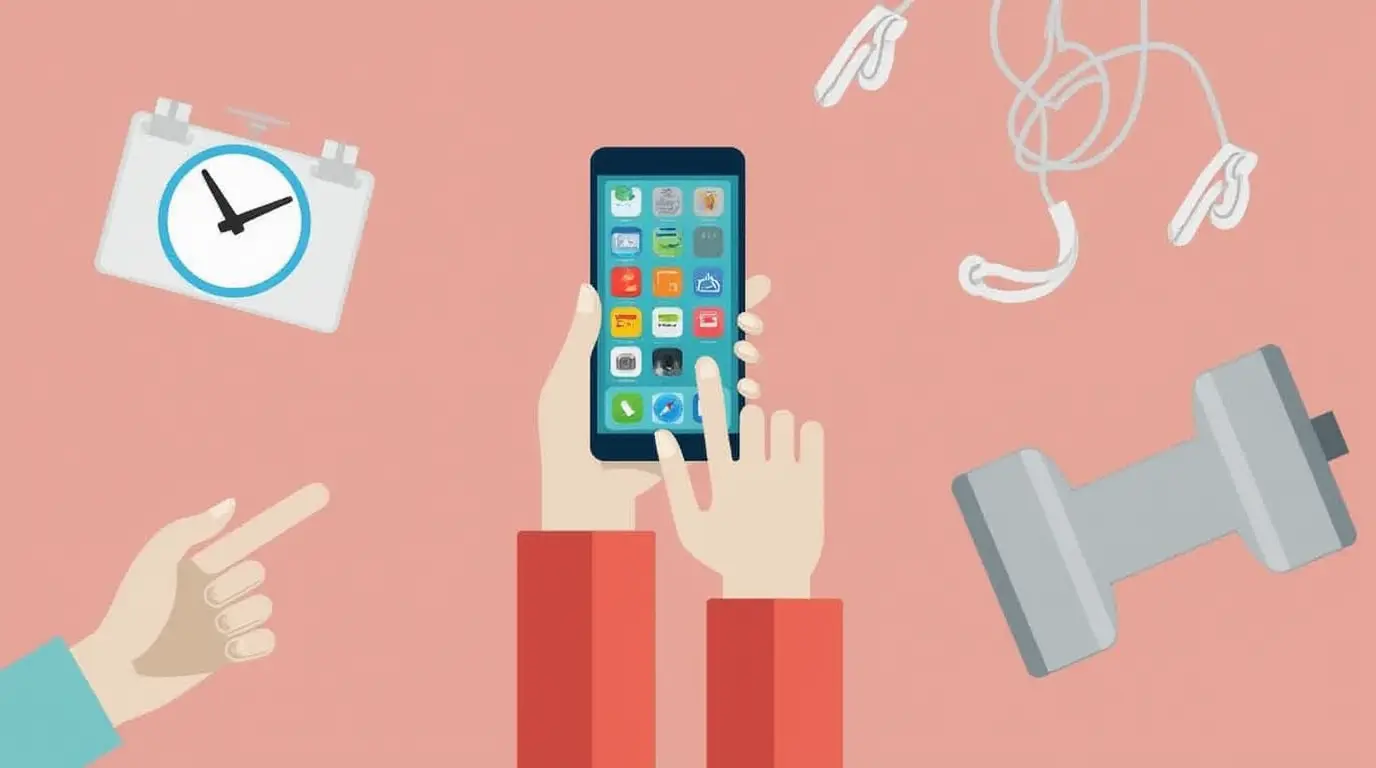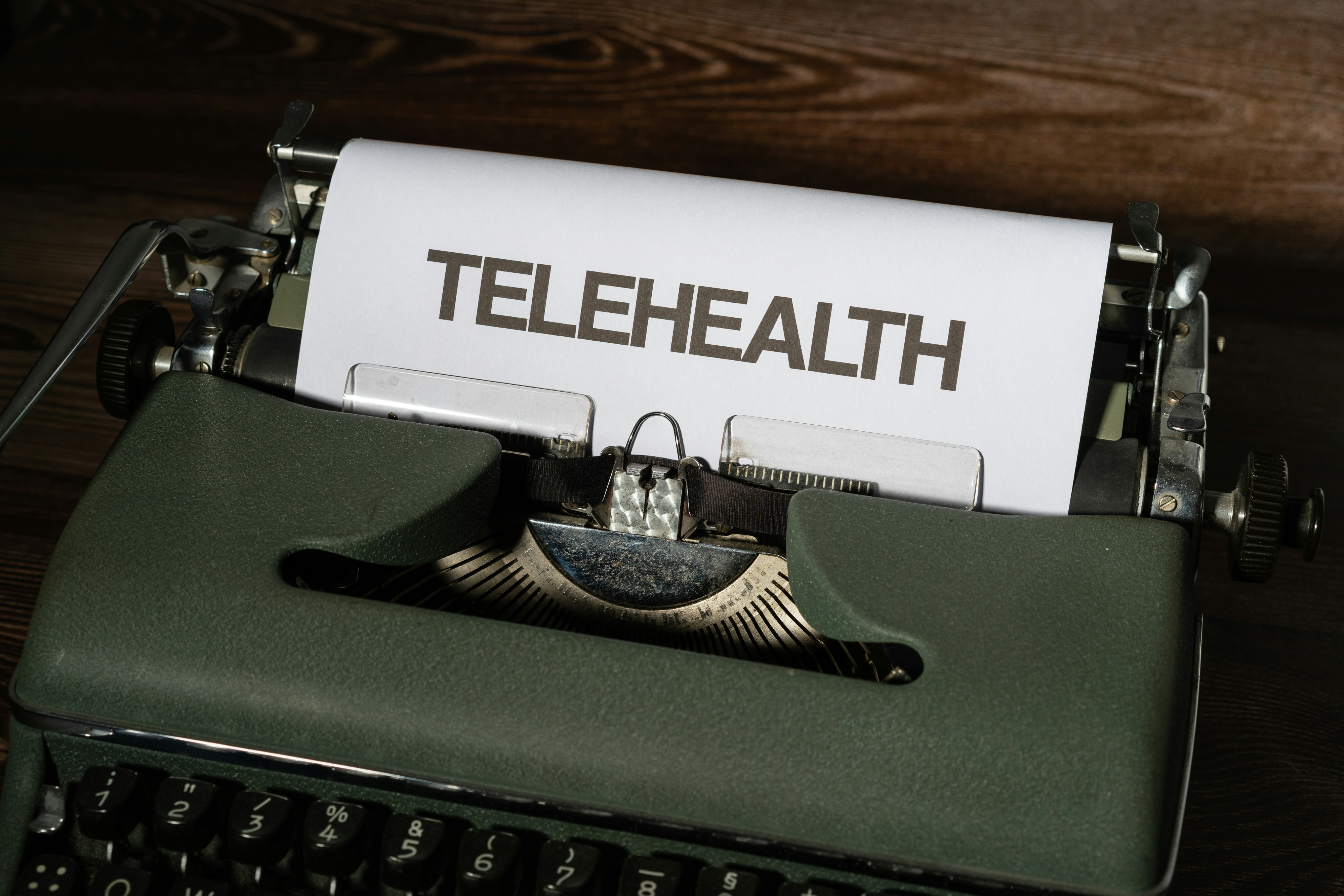We envision a world where everyone has the tools and knowledge to live a balanced, healthy, and fulfilling life. By providing reliable resources, personalized programs, and community support, we aim to be a beacon of hope for those on their health journey.
Table of Contents
Introduction to Health Apps
In recent years, health apps have surged in popularity, becoming a crucial element in the modern landscape of personal health and wellness. These applications offer a convenient means for individuals to monitor and improve various aspects of their well-being. The rise of smartphones and wearable technology has further enhanced their accessibility, enabling users to tap into a wealth of health-related information and tools at their fingertips.
Health apps come in a wide array of types, catering to diverse needs and preferences. Some focus on fitness tracking, allowing users to log their physical activity, set fitness goals, and monitor their progress. Others are tailored for nutrition, providing meal planning assistance, recipe ideas, and calorie counting features. There are also apps designed to support mental health, offering guided meditation, mood tracking, and stress management techniques. Furthermore, chronic disease management apps assist users in tracking their conditions, medication adherence, and appointment schedules, seamlessly integrating into their daily lives.
The convenience offered by these digital tools enables individuals to take a proactive approach toward their health. Unlike traditional methods of health monitoring, which might require scheduled visits to healthcare professionals or reliance on paper-based systems, health apps offer real-time data and feedback. This shift fosters greater engagement and accountability among users, as they can see tangible results and adjust their habits accordingly.
Overall, health apps represent a significant innovation in the pursuit of enhanced lifestyle choices. By prioritizing accessibility and user-friendliness, these digital solutions empower individuals to take control of their health in a manner that was previously unimaginable. As the popularity of health apps continues to grow, they are likely to become an indispensable component of personal wellness strategies for countless users.
Types of Health Apps

Health apps have surged in popularity, offering an array of tools designed to assist individuals in managing their well-being. These applications can generally be categorized into several distinct types, each serving unique purposes while contributing to an overall healthier lifestyle. Understanding these categories can help users select the most suitable apps for their needs.
One prevalent category is fitness tracking apps. These applications are designed to monitor physical activity, providing insights into metrics such as steps taken, calories burned, and workout duration. Many of these apps also offer features like goal setting and progress tracking, thereby motivating users to maintain or enhance their fitness routines.
Nutrition logging apps constitute another essential category, allowing individuals to track their dietary intake. Users can log meals and snacks, ensuring that they meet their nutritional goals. Some nutrition apps also provide information on food items’ calorie content, macronutrients, and vitamins, empowering users to make informed dietary choices.
Mindfulness and meditation apps have gained traction as well. These applications focus on mental well-being, offering guided meditation sessions, deep-breathing exercises, and mindfulness techniques. By promoting relaxation and mental clarity, these apps can help users manage stress and anxiety more effectively.
In addition, sleep monitoring apps serve as valuable tools for enhancing sleep quality. These apps analyze sleep patterns and provide insights into various sleep stages. By utilizing these insights, users can make changes to their bedtime routines and habits to improve overall restfulness.
Lastly, chronic disease management apps have been developed specifically for individuals managing long-term health conditions. These apps provide tools for tracking symptoms, medications, and appointments, offering significant support for effective health management. By aiding in adherence to treatment plans and facilitating communication with healthcare providers, such apps play a crucial role in promoting patient well-being.
Benefits of Using Health Apps
In recent years, health apps have surged in popularity, and their advantages are particularly noteworthy for those aiming to improve their overall well-being. One of the primary benefits of integrating health apps into daily life is the enhanced accountability they provide. Users are able to log their daily activities, maintain dietary records, or track their exercise routines, which fosters a sense of responsibility towards personal health goals. This level of transparency can lead to significant behavioral changes, as individuals become more conscious of their choices.
Health apps also offer personalized health data tracking, allowing users to monitor specific metrics that align with their health objectives. For instance, someone looking to lose weight may utilize an app to track calories consumed and burned, while another user may focus on sleep patterns or blood pressure readings. This tailored approach ensures that the data collected is relevant and beneficial for the user’s individual health journey.
Furthermore, health apps facilitate effective goal setting. Users can establish short-term and long-term health goals within these apps, creating a clear framework for their progress. Goals such as achieving a certain number of steps per day or maintaining a balanced diet can easily be set and monitored, resulting in increased motivation and persistence. These apps often come equipped with reminders and notifications that serve as encouragement to stay on track, nudging users to remain engaged with their health routines.
Lastly, many health apps provide access to a community of like-minded individuals. This network can be instrumental in offering support and encouragement, making the pursuit of health goals a more social experience. Connecting with others can provide motivation, share best practices, and create a sense of belonging, which is often essential for long-term success. In essence, health apps have the potential to transform the way individuals approach their well-being, making the journey not only more efficient but also more enjoyable.
Choosing the Right Health App for You

Selecting a health app that aligns with your personal goals and lifestyle is crucial for enhancing your well-being. With the abundance of health apps available in the market, it can be overwhelming to determine which one is best suited for you. To make an informed choice, consider several key factors.
First, evaluate the user interface of the app. A well-designed interface contributes to a seamless user experience, allowing you to navigate the app effortlessly. Look for features such as easy access to tools and information, which can significantly enhance your engagement and motivation. An intuitive interface will also encourage regular use of the app, fostering consistency in your health journey.
Compatibility is another vital consideration. Many health apps can sync with devices like fitness trackers, smartwatches, and smartphones. Ensure that the app you choose is compatible with your devices, as this integration can enhance functionality and provide a more comprehensive view of your health data.
Furthermore, assess the features offered by the app. Different applications cater to various health goals; whether you aim to manage weight, monitor nutrition, improve fitness, or track mental well-being, the app you select should align with your specific objectives. Comprehensive features tailored to your goals can make a significant difference in your progress.
Finally, take the time to read user reviews and ratings. Insights from fellow users can provide valuable information about the app’s effectiveness, reliability, and overall experience. Look for feedback regarding ongoing support, updates, and community engagement, as this can reflect the app’s commitment to user satisfaction.
Incorporating these considerations into your decision-making process will help you choose a health app that not only meets your needs but also supports your journey towards improved well-being.
Integrating Health Apps into Your Daily Routine
In today’s fast-paced world, incorporating health apps into your daily routine can significantly enhance your wellness journey. To make health applications an integral part of your life, it’s essential to set achievable goals. Define what you wish to accomplish, whether it’s tracking your daily steps, improving your sleep quality, or managing your nutrition. Set realistic targets to avoid feeling overwhelmed, as small, incremental adjustments often lead to more sustainable changes.
Consistency is key when using health apps. Establish a regular time each day to interact with the app. This could be in the morning to review sleep statistics or in the evening to log your meals. By creating a habit, using the app will become second nature, and you will be more likely to stick with your health goals over time. Overcoming initial resistance to adopting new technology can sometimes require patience, but persistence will yield positive outcomes.
Utilizing notifications provided by health apps can serve as effective reminders for your health activities. Enabling alerts for hydration, exercise, or medication can enhance engagement and ensure you remain focused on your health goals throughout the day. Be mindful, however, to customize the notifications so they contribute positively and do not become a source of annoyance or distraction.
Creating a supportive environment is another vital aspect. Engage friends and family by sharing your health app progress with them, or even invite them to join you in using the app. This not only fosters accountability but also builds a community around your wellness pursuits. Engaging with others can enhance motivation and provide encouragement, making your health journey more enjoyable and collaborative.
Success Stories: Real-Life Examples of Transformation

The integration of health apps into daily routines has led to remarkable transformations in individuals’ lifestyles. One such story involves a young professional, Sarah, who struggled with maintaining a balanced diet amidst her hectic work schedule. After discovering a meal planning app, Sarah was able to track her food intake and identify unhealthy eating patterns. The app’s user-friendly interface allowed her to set personalized goals for incorporating more fruits and vegetables into her diet. Over six months, Sarah lost 20 pounds and reported feeling more energetic and focused at work.
Another inspiring example is that of John, a middle-aged man who had been diagnosed with hypertension. Determined to improve his health, John began using a blood pressure monitoring app that enabled him to record his readings consistently and share them with his healthcare provider. This app not only helped John track his progress but also provided educational resources about managing hypertension through lifestyle changes. Through regular exercise and improved diet, John successfully lowered his blood pressure and received praise from his doctor for his commitment to his health journey.
In addition, we can look at the story of Emily, a stay-at-home mother who sought to enhance her mental health. She turned to a mindfulness and meditation app to learn techniques that could help alleviate her stress. By setting aside just ten minutes a day to practice mindfulness, Emily noticed a significant decrease in her anxiety levels and an improvement in her overall mood. This small daily commitment transformed both her outlook on life and her relationships with her family.
These narratives underscore the potential impact of health apps on individual well-being. From managing weight and chronic conditions to promoting mental health, these digital tools can facilitate significant lifestyle changes. Such success stories provide motivation for those considering similar paths, illustrating the transformative power of technology in health and wellness.
Challenges and Limitations of Health Apps
While health apps offer numerous benefits for tracking fitness, nutrition, and overall well-being, they are not without their challenges and limitations. One primary concern is the increasing dependence on technology. Many users may find themselves relying heavily on their smartphones, tablets, or wearable devices, which can lead to a disconnection from traditional methods of health management. This dependence can potentially hinder individuals from developing their intrinsic motivation to maintain a healthy lifestyle, as they may prioritize app notifications over actual physical or mental wellness practices.
Additionally, the potential for misinformation in health apps poses a significant issue. The vast array of available applications can lead to confusion regarding which guidelines or advice to follow. Many apps do not undergo rigorous clinical validation, allowing for the spread of inaccurate information or unrealistic health goals. Users should remain critical of the content presented by these apps, as following false information can adversely affect their health routines rather than enhance them.
Moreover, the issues surrounding data privacy and security in health apps merit serious consideration. Many applications collect personal data, including sensitive health information, which can be vulnerable to cyberattacks or misuse. Users may unknowingly consent to share their data with third parties, raising concerns about confidentiality and the potential for exploitation of their health information. Therefore, it is vital for users to carefully review privacy policies and understand the implications of data sharing before engaging with these applications.
In conclusion, while health apps can serve as valuable tools in enhancing wellness, potential drawbacks such as technology reliance, misinformation, and data privacy issues must be acknowledged. Users should remain vigilant and informed to maximize the effectiveness of these applications while minimizing risks associated with their use.
The Future of Health Apps

The landscape of health applications is rapidly evolving, with innovations promising to revolutionize the way individuals manage their well-being. One of the most significant trends is the integration of artificial intelligence (AI) and machine learning technologies. These advancements enable health apps to analyze vast amounts of personal health data and deliver insights that were previously unattainable. Through AI algorithms, users might receive tailored recommendations based on their specific health conditions, preferences, and lifestyle choices, allowing for a more individualized approach to health management.
Personalized health recommendations are becoming increasingly feasible, as evidenced by the growing use of wearable devices that track various health metrics in real-time. As health apps gain access to more comprehensive datasets, including biometric information from wearables, they can provide users with proactive advice regarding exercise, nutrition, and sleep patterns. This shift towards personalized health insights is expected to lead to improved health outcomes, as users are better equipped to make informed decisions about their lifestyles.
Furthermore, there is a notable trend toward collaboration between health app developers and traditional healthcare providers. As the acceptance of digital health tools increases among patients and practitioners alike, we anticipate that more health apps will integrate with electronic health record systems, facilitating seamless communication between patients and their healthcare teams. Such collaborations could enhance patient care by enabling app users to share their health data with providers, who can then monitor progress and adjust treatment plans as necessary. In this way, health apps have the potential to bridge the gap between personal health management and professional healthcare, fostering a more holistic approach to well-being.
Conclusion: Embracing Technology for a Healthier Lifestyle
In today’s fast-paced world, maintaining a healthy lifestyle can often seem challenging. However, the advent of health apps has revolutionized the way individuals can engage with their wellness journey. Throughout this discussion, we have highlighted the key features of health apps, their benefits, and how they can be instrumental in fostering better health practices.
Health apps offer users the opportunity to track various aspects of their wellness, including physical activity, nutrition, and mental health. By providing personalized recommendations and data analysis, these applications empower users to make informed decisions regarding their health. The ability to monitor progress through metrics and visualizations enhances motivation, making it easier to achieve health goals. Furthermore, many apps facilitate a connection to professional healthcare resources, ensuring users have access to expert guidance and support when needed.
Moreover, the convenience and accessibility of health apps make them an ideal solution for individuals on the go. Whether it is logging meals, scheduling workouts, or engaging in mindfulness practices, the versatility of these tools allows for a seamless integration of health practices into daily life. As technology continues to evolve, the capabilities of health apps are expected to expand, offering even greater functionalities for users.
In light of these factors, it is essential for individuals to consider incorporating health apps into their personal health journey. The positive transformations made possible through these digital tools cannot be underestimated. By embracing technology and utilizing health applications, individuals can take proactive steps toward enhancing their overall well-being, ultimately leading to a healthier, more fulfilling life.








